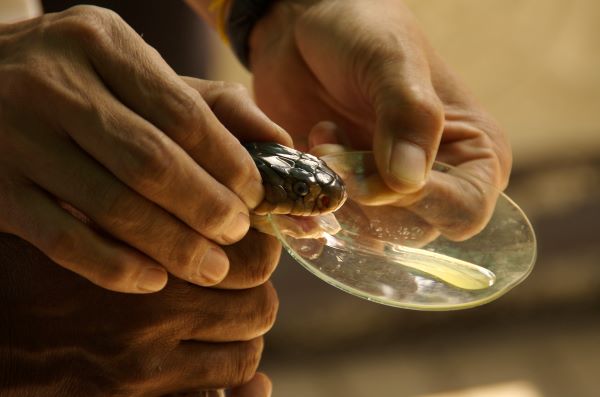23 February 2023
Enhanced capability key to managing supply chain risk

Concerns over an increase in snake bite presentations to Melbourne emergency departments after the Victorian floods prompted the Department of Health to call upon HSV’s supply chain surety expertise.
HSV worked with health services, the National Medical Stockpile (NMS) and Victorian Therapeutics Advisory Group (VicTAG) to verify stock levels of antivenom in response to the Department’s request.
“There were concerns about changes in the behaviour of snakes after the October floods moved them out of their usual habitats,” says HSV Director Supply Chain Surety Kate Warren.
“It's part of our remit to address requests for information related to unexpected events like this. It’s often difficult to know what the next issue will be or where it’s likely to come from,” she says.
HSV’s Supply Chain Surety team was able to quickly verify supply lines of antivenom, following confirmation by the NMS that a strategic agreement was in place.
“There is no shortage of supply. These antivenom products are manufactured locally here in Victoria, which gives health services additional peace of mind,” says Kate.
“Supplies can be impacted by environmental changes. In this instance snakes were moving around more than usual due to the floods. Their numbers had also increased during the COVID lockdowns.”
HSV’s ability to tap into a strong national network played a crucial role in determining the product’s availability. For example, the team was able to meet with a metropolitan hospital’s Director of Pharmacy for advice on investigating supply lines.
“We also contacted the NMS – who we speak to regularly in the case of a potential shortage – to establish whether they held the product. We contacted Directors of Procurement to confirm stock availability in the regions and reached out to communities to make sure they knew how to access additional stock if required,” says Kate.
The team’s investigation meant that supply lines could be verified within 24 hours.
“Now that HSV has the capability in place, we have the expertise to carry out a thorough investigation quickly, using our large and developing network and rigorous methodology to address potential risks that could impact health services,” says Kate.
According to researchers at the Royal Melbourne Hospital and University of Melbourne more than 3,000 Australians are bitten by snakes each year, with 500 being hospitalised and two dying on average. In Victoria in 2022, there were 128 calls to the Victorian Poison Information Centre regarding snake bites.